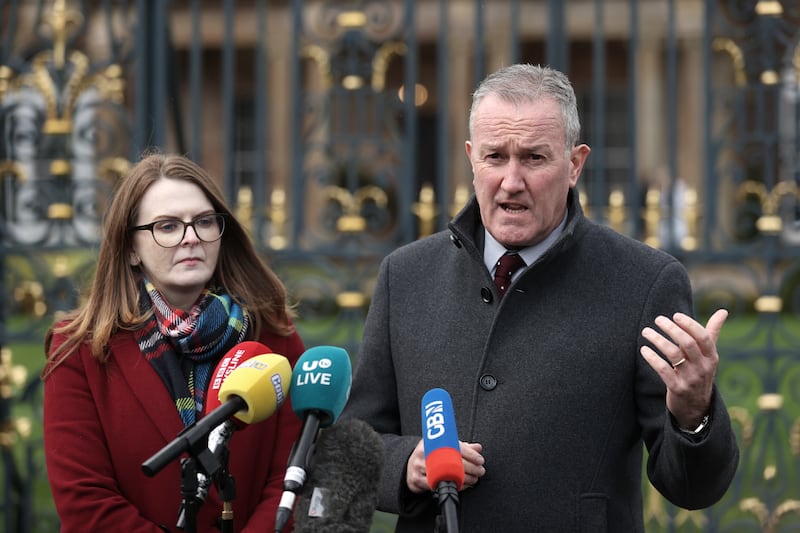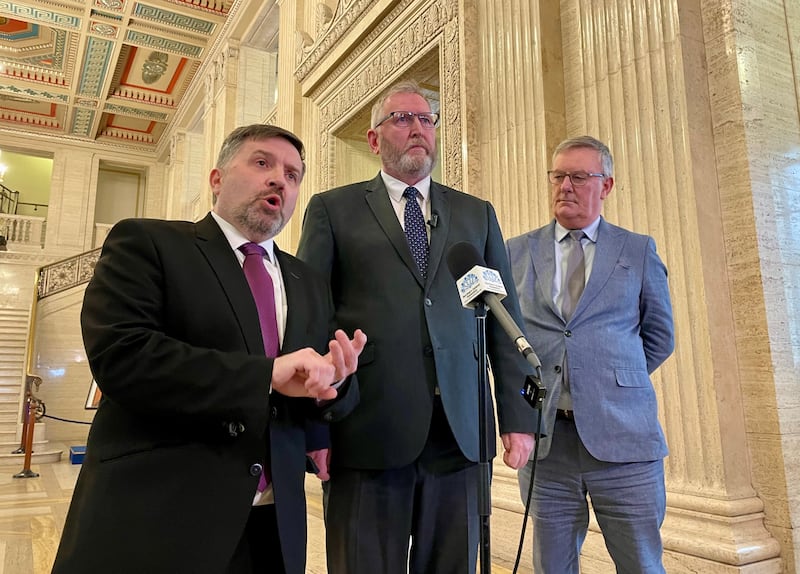If Sinn Féin sees Stormont as a way to demonstrate its fitness for office in the Republic, the demonstration period just got longer.
That could work out to everyone’s advantage.
When devolution was restored in February, Sinn Féin could reasonably assume it would be leading a coalition in Dublin within a year, an ideal time-frame to send a positive message of leadership from north to south without having to stand over any difficult decisions.
The demonstration period would not have to last longer than the new executive’s honeymoon period. Stormont might not even have a programme for government by October, when Irish voters could be heading to the polls.
But Sinn Féin’s prospects for power have taken a knock after its European and council results in the Republic.
It should do better by default in the next Irish general election, as the only major opposition party. In one respect its chances of being in coalition have increased, as it is less threatening to Fianna Fáil as a junior partner. However, its chances of leading a sovereign government in the coming months have significantly receded.
That puts the goal back to the subsequent Irish general election, probably towards the end of 2029. A Stormont election is scheduled for May 2027. So Sinn Féin has to lead the executive through the rest of this term, campaign to be re-elected, then lead it through half of the next term, before presenting its northern record as a reason for southern voters to put it in charge.
Few elections are due across the island of Ireland for the remainder of this decade, making Stormont the only arena where Sinn Féin can sustain a message of success and momentum.
There are strong signs the party has genuinely embraced responsible leadership of the executive. It appears to have chosen the Department for the Economy with the intention of delivering serious reform. Passing a challenging budget and defending it against UUP populism suggests a willingness to stand over difficult decisions.

On the other hand, the budget is only for one year and Sinn Féin did not know it would be writing it until the last moment in February, as the DUP had been expected to take the Department of Finance instead. Republicans have a reputation for long-term planning that can obscure frantic improvisation.
Sinn Féin must now show policy delivery at Stormont to impress voters on the timescale required. It needs several landmark successes; keeping the lights on will not be enough.
The party does not have direct responsibility for the two areas where success would make the greatest impression. Northern voters will judge Stormont on health, which is under the UUP and would pass to the DUP if the UUP goes into opposition. Southern voters may judge Stormont on housing, which mainly falls under the DUP-controlled Department for Communities.

Sinn Féin ministers have related remits and the party co-directs the executive’s agenda. In theory, having to share credit with unionists should make progress easier to achieve, as everyone would be motivated to cooperate. Sinn Féin could capitalise on vague perceptions in the Republic of its leadership getting results. It can also choose a more relevant set of departments when the executive is reformed in 2027, half-way to the critical Irish general election.
Housing and health are just two prominent issues where Stormont could achieve dramatic improvements if it was prepared to be briefly unpopular and confront entrenched interests.
One of the great mysteries of power-sharing is why parties almost guaranteed a place in office and who do not compete with each other for votes are still terrified of doing anything that might be criticised.
One of the great mysteries of power-sharing is why parties almost guaranteed a place in office and who do not compete with each other for votes are still terrified of doing anything that might be criticised
The republican dilemma over ‘making Northern Ireland work’ is that it could strengthen the union. This is now matched by a unionist dilemma of strengthening the union by making a Sinn Féin-led executive work.
It is possible these contradictions could cancel out and usher in the long-promised best of both worlds, where everyone believes a successful Northern Ireland serves their constitutional aspirations, although those beliefs may be cynically and strategically held.
But that assumes Sinn Féin will continue to see Stormont as a way to demonstrate its fitness for office.
It could note how the southern electorate seems unmoved by its northern progress and conclude that responsible government at Stormont is a risk with little reward.










